Dead Man Switch Read online
DEDICATION
For Oma and Opa
CONTENTS
Dedication
Prologue
Chapter One
Chapter Two
Chapter Three
Chapter Four
Chapter Five
Chapter Six
Chapter Seven
Chapter Eight
Chapter Nine
Chapter Ten
Chapter Eleven
Chapter Twelve
Chapter Thirteen
Chapter Fourteen
Chapter Fifteen
Chapter Sixteen
Chapter Seventeen
Chapter Eighteen
Chapter Nineteen
Chapter Twenty
Chapter Twenty-One
Chapter Twenty-Two
Chapter Twenty-Three
Chapter Twenty-Four
Chapter Twenty-Five
Chapter Twenty-Six
Chapter Twenty-Seven
Chapter Twenty-Eight
Chapter Twenty-Nine
Chapter Thirty
Chapter Thirty-One
Chapter Thirty-Two
Chapter Thirty-Three
Chapter Thirty-Four
Acknowledgements
About the Author
Also by Tara Moss
Copyright
PROLOGUE
The night was starless pitch, enveloping him as in the feathered wings of a giant black raven.
Everything ached: his body, his head, the stifling darkness itself, and that darkness was spinning off-kilter, moving unpredictably and leaving him nauseous. His eyes felt warm and wet, and he opened them, strained them wide, but still he could not see. Not a fighter by nature, his survival instincts had nonetheless been awakened and the boy struck out – once, twice – hitting nothing but air. Sharp blows came back out of that unpredictable, impenetrable inky blanket, returning his unsuccessful strikes with hard and unforgiving ones. Pain shot through him again in white-hot flashes – his cheekbone, his ribs, his gut – and then the blows stopped. He curled into a ball once more, protecting his head, and he breathed uneasily, his ears ringing. His face felt hot. Something warm and salty dripped into his mouth.
Barely past his seventeenth birthday, he’d already travelled across the seas, seen injustice and violence, but he had never been so scared in his life as he was in that moment, there in the darkness, huddled and blind. Yes, he was scared. Scared as a fly in a web. If it was shameful to feel scared he’d have to think on that another time – if there was anything after this, any time to come at all. For now there was only room for one emotion.
Fear.
‘Didn’t nobody tell you about curiosity and the cat?’ came a voice, and then the earth was moving beneath him; he was pulled by his arms, the ground scraping against his face, his shoulder. He was lifted into the air like a rag doll and dropped. The ground beneath him gave and swayed. It was not ground; it was wool. A blanket. It smelled horribly of damp and carried the metallic tang of blood.
He tried again to speak. ‘But—’
Another blow. Somewhere in the close distance, just beyond the ringing in his ears, he heard a boot close and an engine start. The dark black bird of oblivion reached for him again and he was gone.
CHAPTER ONE
Billie Walker was right back in the moment.
The sun was warming her face, a world of abstract technicolour behind her eyes as she closed her lids against a brief gust of wind, turning the corner on Stephansplatz. Each detail was so clear, so present, even now. There was the smell of something baked in the air. A shop’s delicious daily offerings of Sachertorte and Apfelstrudel. She’d laughed at something Jack had said. She could feel his large, reassuring hand in hers as they walked, their world a bubble of new love and the excitement of foreign soil and the thrill of a story. No caution. No fear. Their leather shoes clicked on the cobblestones and she could hear voices beyond the corner, then a shouting that pulled her from her reverie. Her reporter’s notepad was in her hand in an instant, and she broke from Jack and looked down to catch the pencil that was slipping.
When she looked up, she saw it. She stopped in her tracks as Jack already had. The world came rushing in, shattering the illusion of safety. A dozen women were on their knees in the large square, surrounded by men in uniform. They were weeping quietly as their heads were shaved. She saw blood and hair, naked skin and tears. A man was in his underthings on the street beside them, cowering, his back bloodied, his beard shaved, his yarmulke crushed on the ground beside him. A crowd watched. Some of them were shouting, their fists raised. Billie couldn’t hear what they were saying through the sound of the blood pumping in her ears. Just as the urge to run forward and intervene struck her, one of the storm-troopers turned, caught her eye. She looked away in an instant, as if the gaze would burn her.
She closed her eyes.
What they saw in Vienna was always there, just waiting for her lids to close. One day in 1938 she’d opened her eyes to find it, and now it was there each time she closed them – a kind of reversal. Why those memories? Why that weekend? It was all wrapped up in Jack, in the war, in everything she had to somehow leave behind now, everything that her head told her was over, but her heart still clung to.
Billie shook herself gently and gathered up her things. There was no sense in lingering on memories, even if they wouldn’t let her go just yet. She wasn’t in Europe anymore. She was back in Australia. It was 1946, a new world, and she had to make a new life in it. She had to, and she would. The tram was slowing, pulling up next to Central. She removed a small gilded compact and lipstick from her handbag and reapplied a touch of Tussy’s ‘Fighting Red’. This was her stop. It was time to rise.
‘Morning, John,’ Billie called as she strode into the foyer of Daking House, moving swiftly on long, graceful legs, yet as quietly as a cat, her crepe-soled oxfords making only the softest sound on the hardwood floor. It was to here that she took the tram most days of the week, for this was where she rented an office.
On hearing Billie’s voice the lift attendant stood to attention, roused by the presence of his oft-claimed ‘favourite customer’ in the building. There was no reason to disbelieve him on that score. When Billie arrived in the morning it was always past ten, well after the delivery boys had stocked the ground-floor shops and left again in their trucks, and the silver-haired businessmen had moved through the lobby and disappeared into their various offices, frowning and shuffling, plenty of them already stinking of cigars by nine. Billie never shuffled. She preferred the smell of French perfume to cigar smoke, and if she knew anything about reading the body language of quiet men, the lift attendant did too. Other tenants like the Roberts Dancing School, the Sydney Single Tax Club, the United Jewish Overseas Relief Fund, the players who frequented the billiards room downstairs and the like, well, they came and went at odd hours, a bit like Billie often did, but the accountants and legal types and those men from the New South Wales Kennel Control Board kept strict schedules and at this hour were hunched at their desks in their professional chambers, applying themselves to the type of work that was simply not in her blood. Few clients in her trade could be expected to knock at 9 am. Midnight, however – well that was not entirely unheard of. Her trade might have a ‘mixed’ reputation, but the ways of the world demanded it. As did her purse.
‘Good morning, Ms Walker . . . Always a pleasure,’ the lift operator said.
When he’d started at the building in August, replacing a kind-faced, grey-haired woman who had held the position during the war years, this new lift operator had insisted that she call him by his first name, John. But just what to call Billie was no small question these days. Those in his line of work customarily used formal titles and, n
ew to his job, John Wilson was reluctant to accept her invitation to refer to her simply as ‘Billie’, as the previous attendant had come to. Not just yet, anyway. But every time someone referred to Billie as ‘Mrs’ it reminded her of the uncertainty of her personal life. It reminded her of loss and set her on edge. ‘Miss’ wasn’t quite right either, she felt, and she could hardly be called that after all that had gone on in the past few years, including a wartime wedding, albeit a makeshift one with no ring and few witnesses. In the end she had requested ‘Ms’, the term sitting better. It had its roots in the old titles, as Billie understood it, and was coined at the turn of the century as a more ‘neutral’ honorific for women, but was little used. She had seen it mentioned in a New York Times article some years previous and at the time of reading hadn’t any inkling how well it would later suit her. John Wilson had accepted the request without comment, and now Billie got to hear ‘Ms Walker’ every working day of the week. In the wider world, well, there was always the tripping over Miss, Mrs, Madam, Mademoiselle – the whole complicated matter of a woman of marriageable age but uncertain status. Strangely, with all that the war had taught the world about the inherent precariousness of life, such details seemed to have gained more, not less, prominence, as if the years of darkness had been prompted by a title, by a woman, rather than by Nationalsozialismus and the sinister edges of the Will to Power. It was part of a grasp for stability, Billie supposed, a nostalgic turning back to something ‘simpler’, more rigid and readily understood. But Billie didn’t want to turn back. That wasn’t her style. And besides, there was no undoing what the war had done.
Wilson dutifully stepped back to usher her into the nearest of the building’s four lifts – two for passengers, two for cargo. Only one of the passenger lifts was currently running and they’d just started operating it from the ground floor again in recent months; previously the tenants had climbed the stairs to the first levels to conserve power. It still felt a touch luxurious to go up from the lobby. Billie stepped inside the cab and Wilson slid the outer and inner metal doors closed with his strong left hand, the grille unfolding like a wall of opening scissors. His right hand, once his dominant hand, had not survived the war, and neither had that full arm. His suit was pinned on the side – not so unusual a sight in Sydney these days. His hair was neat and short, but the hairline was uneven on one side. His face, once conventionally handsome, Billie guessed, was marked by burns, though both his eyes, his nose and most of his mouth were unscathed. For over a year now the city had filled with broken men returning from overseas. Many were shunned for the disfigurements they could not hide, and the Australian bush was filling with such men, just as it had after the Great War – men who preferred lonely solitude to the stares they were met with on city streets, the pointing of children, the constant reminders. But John had returned to a relieved family, and was already well liked by those in the building. He’d made it back, while many had not.
They rode up, the cab rattling.
‘How is June?’ Billie, as she often did, inquired after Wilson’s wife. ‘And the children?’
‘Very well. Thank you for asking,’ he said and his mouth moved into an uneven smile, his eyes crinkling warmly. He slowed the lift at the sixth floor, jogging the lever up and down a couple of times to line it up with the hallway outside. He let go of the handle too suddenly and the elevator lurched, the dead man switch kicking in. ‘Apologies, Ms Walker. Just as well we’ve got the switch to, uh, stop us, if my hand slips,’ he said, reddening slightly beneath his scars. If you didn’t keep your hands continuously on the lift control you could activate the mechanism – the actual death of the man operating it wasn’t necessary to set it off. Wilson was new to his certificate, but it happened to those with more experience, too. He pulled the grille doors open. ‘Watch your step.’
‘Always,’ Billie replied and flashed him a smile.
She walked along the hall, passing offices already humming with activity, until she arrived at a wooden door fitted with a frosted glass window, a simple title painted in black across it:
B. Walker, Private Inquiries
This was where her late father had spent so much of his life, where so many of the stories he’d told her at the dinner table had been born. She’d changed the space very little since taking over; the set-up, furniture and pictures were largely the same, but of necessity she’d sublet two of the office spaces he’d used to accommodate his employees. Hers was a smaller agency and she liked that just fine. Office spaces were at a premium, more than £7 8s per week for a single, and revenue aside, there was some considerable animosity aimed at those who didn’t do their best to make room for the returned men and their needs. Keeping more of the office space than absolutely needed would not have aided her socially or professionally and, as it was, acceptance of Billie and her work was still at best uneven. After Victory in the Pacific Day women were expected to walk out of the aviation plants and munitions factories and news offices and hospitals they’d run successfully during the war and abandon the independence of a wage to return to their kitchens, but Billie had never been one of those women, hadn’t been raised that way, and she certainly wasn’t going to bow to the pressure now.
The door was unlocked, her secretary already seated in the outer office, where clients sometimes waited. Billie unbelted her double-breasted trench coat, and cast a glance at the line of four neat walnut chairs placed before the low table she kept stocked with an assortment of respectable, somewhat bland magazines and a couple of the more fashionable women’s journals. The chairs were distinctly unoccupied. The magazines were neatly spread out, untouched. There was no one waiting today, no appointments set. Hadn’t been for over a week. This was another solid reason to sublet the two office spaces.
‘Good morning, Ms Walker. Your mail is on your desk,’ Samuel Baker informed her, standing as if at attention.
She slid out of her coat and he took it and hung it on the coat rack. She removed her round sunglasses, adjusted the hatpin in the small green topper that sat over her left ear, smoothed down the lines of her fitted, summer-weight skirt suit, thanked her secretary-cum-assistant and strode into the inner office, settling down behind her desk and leaving the communicating door open. Her office had a rust-red carpet, a couple of fading hunter-green filing cabinets, a globe of the world and a wide wooden desk, blotter, pen set and telephone that had belonged to her father and had graced the room for at least two decades. On the wall was a large map of Sydney in a slightly battered wooden frame. It had been there for as long as she’d known the office and she suspected that if it was ever moved, the wall beneath would likely be a startlingly different colour. It wasn’t a fancy space. It didn’t need to be. Clients didn’t come to her for interior decorating tips.
Her father’s ashtray sat on the far edge of Billie’s desk, positioned for clients’ convenience. Most women now smoked, but Billie had never liked it as a daily habit. There were smoking days, yes indeed, but this wasn’t one of them. The ashtray was cleaned out and empty. The daily newspapers sat on her desk – the Sydney Morning Herald, the scandal sheet the Truth and the most recently available Paris Herald Tribune – all neatly folded. It paid to know what was being said in the world. Two framed pictures faced Billie. One was a formal portrait of her mother and father on their wedding day, her father in tails with white tie and a black shining top hat tucked under his arm (probably the only time he’d ever touched one) and her mother in a glittering headpiece, a waved bob hairstyle she hadn’t changed since, and a scandalously short gown that showed her ankles above low-heeled shoes tied with glossy ribbons. Ella held a bouquet that trailed to the floor, and on her dark lips was the grin of the cat who got the cream. The other frame was smaller and held a more recent image, one of Jack Rake, taken by Billie in Vienna. It was mostly in focus and it caught him smiling that weekend before the world crashed in around them. That weekend they’d fallen in love.
Billie’s breath caught in her throat. Jack was just as
he looked in those flashes that haunted her each time she closed her eyes. That smile. And the seriousness that followed. Those earnest, searching hazel eyes. ‘Blast,’ she murmured, and looked away. She needed work to keep her occupied.
Her ivory blouse had been tied in a pussy bow at her throat, but had begun to loosen, and with neatly kept, unvarnished fingers Billie fixed the knot then picked up the top envelope on her wide wooden desktop. Her eyes narrowed. It was addressed to Mr B Walker, and not for the first time. This might be mail for her late father, but well over a year after his death that was unlikely to be the case. Billie Walker was not what many people expected. Perhaps foremost, Billie was not a Mr. But then, what was the fun in doing or being what was expected? She slit open the envelope and glanced through a solicitor’s dull note about a previous case involving marital disharmony. The day’s mail brought little to be excited about and she soon turned to the newspapers, flicking through them before committing to a more thorough reading with a fresh cup of tea on the way. A shipyard lock-out was causing havoc at the Sydney docks. A series of pictures showed Chifley with the Governor-General, Prince Henry, Duke of Gloucester at an official function. Sydney auction houses were busy moving valuables, some of which appeared to be major estate pieces. In world news, two-piece swimming costumes were being modelled in Paris. There was a large-scale withdrawal of Russian troops from Germany. Belgium, the Netherlands and Luxembourg agreed to repatriate German war prisoners as soon as possible. France had still not signed any agreement.
Billie looked up from the papers as Samuel came in with the tea tray, a morning routine which was always a pleasant distraction. Broad-shouldered and lanky, wearing a lightly pin-striped suit and a pleasing burgundy and sky-blue tie of the current style, he sprawled out in one of the two chairs opposite Billie’s desk and dropped a sugar cube into her tea, most of his professional formality evaporating when he left the outer office that was his guard post. His tea-making was surprisingly good, something he’d either mastered in the army or at the urging of a mother with good English sensibilities. He pushed her tea cup across to her.

 The War Widow
The War Widow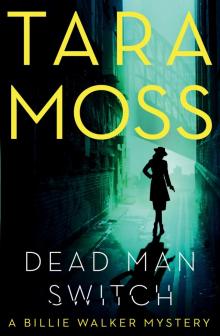 Dead Man Switch
Dead Man Switch Assassin
Assassin The Mak Collection
The Mak Collection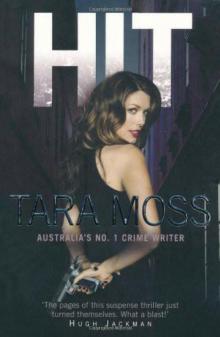 Hit
Hit The Blood Countess
The Blood Countess Siren
Siren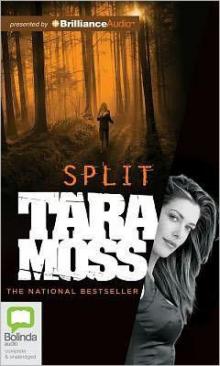 Split
Split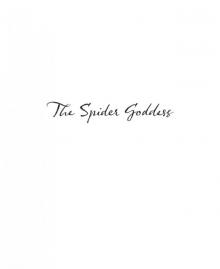 The Spider Goddess
The Spider Goddess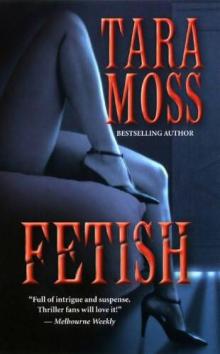 Fetish
Fetish The Skeleton Key
The Skeleton Key Covet
Covet